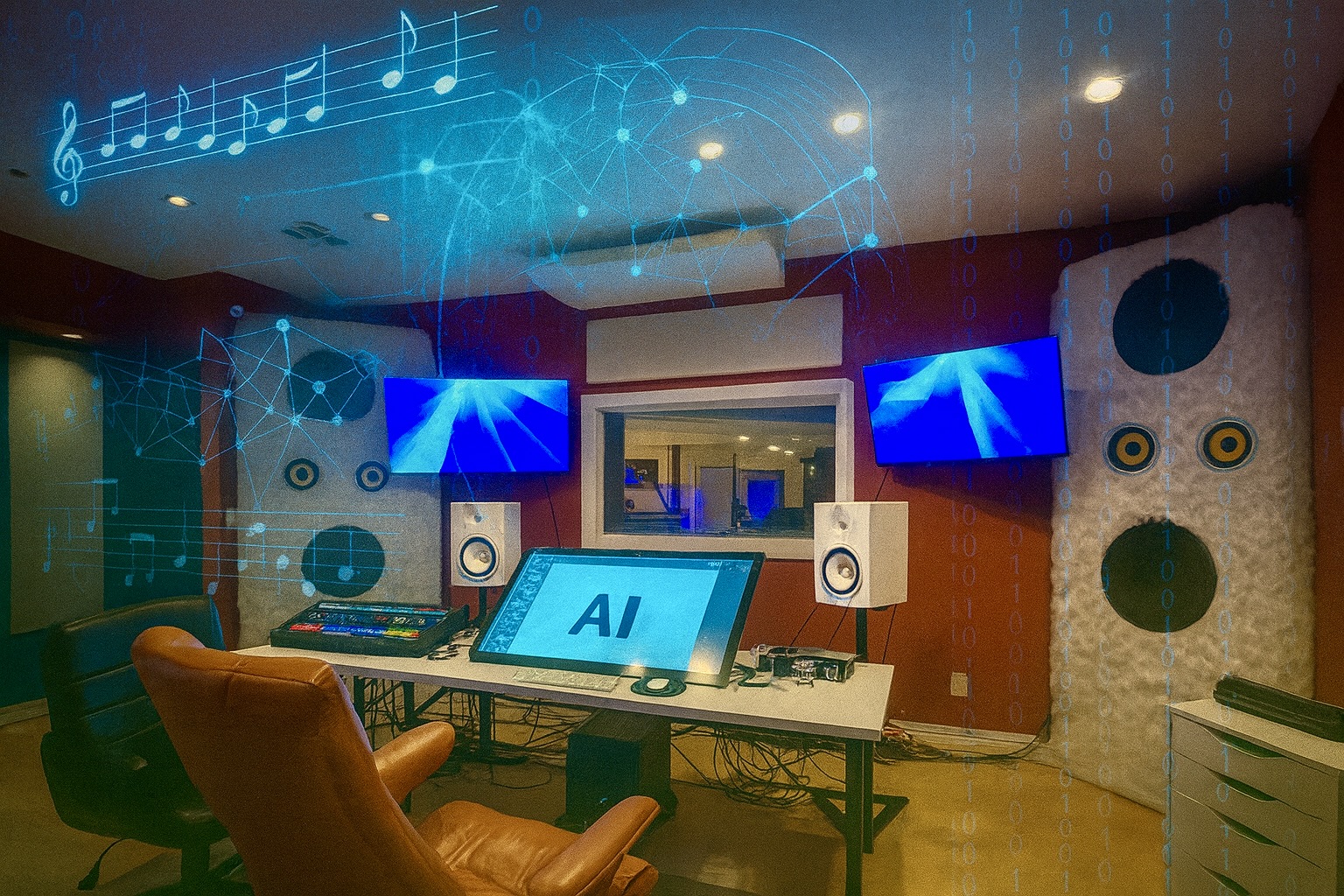

At The Music Company (TMC), the conversation about music and AI begins with inspiration in a world-class beach-side studio.
What if a song that sounds exactly like you—your voice, your phrasing, your inflection—went viral overnight… but you never recorded it? With the rise of AI-generated vocals and deepfake videos, this scenario isn’t just speculative fiction—it’s happening. As artists grapple with the creative and legal implications of emerging technology, one little-known but powerful legal tool is stepping into the spotlight: California’s Right of Publicity.
The Right of Publicity: Your Identity Is Protected
In California, Civil Code § 3344 protects an individual’s name, voice, signature, photograph, and likeness from unauthorized commercial use. This is separate from copyright law, which typically covers most of the legal issues relating to music. For example, even if a musician doesn’t own their compositions or sound recordings, they still own their identity.
Importantly, California also protects a person’s right of publicity for up to 70 years after they die. This means estates of deceased artists can take legal action when AI recreates their persona without permission.
Historically, the courts have sided with artists in cases of unauthorized impersonation. In Midler v. Ford Motor Co. (1988), Bette Midler successfully sued a car company for hiring a soundalike to imitate her voice in an advertisement. Similarly, Tom Waits won against Frito-Lay for a commercial jingle that mimicked his gravelly tone.
Deepfakes and Voice Cloning: Legal Gray Zones
AI tools can now replicate a musician’s voice from just minutes of audio. The technology is already being used to create “new” songs by deceased or unconsenting artists that sound nearly identical to the original. In 2023, a viral AI-generated song featuring fake versions of Drake and The Weeknd’s voices made headlines before being pulled from streaming platforms.
Here’s the issue: these AI creations don’t often use existing copyrighted material. Instead, they imitate style, voice, and likeness—areas governed more by publicity rights than copyright. This puts the Right of Publicity front and center in the legal discussion.
While courts are still catching up, musicians should be alert to potential misuse of their voice in:
- AI-generated “duets” or fake collaborations and/or features
- Advertising or political messaging
- AI models trained using someone’s work without their consent
What Artists Can Do Now
- Understand your rights. If you’re a California resident, your voice and likeness are generally legally protected from commercial exploitation.
- Include AI-related clauses in agreements. Spell out that your voice or image may not be used in synthetic or AI-generated formats without written permission.
- Watermark your audio. Technologies exist that embed inaudible markers and metadata in recordings to verify authenticity.
- Set up content monitoring. Tools like YouTube’s Content ID, or paid services like Pex, can help detect unauthorized use.
- Register your name or likeness as a trademark, especially if it’s distinctive and used commercially.
Looking Ahead
The Right of Publicity is poised to become one of the most important areas of law for musicians navigating a potentially increasingly AI-powered industry. As synthetic media blurs the line between human and machine, protecting your voice means more than managing your recordings—it means defending your very identity.
About Brian Witkin
Brian Witkin runs a boutique entertainment law firm in Del Mar, California. He is also an award-winning musician, producer, and CEO of Pacific Records. Brian has spent nearly two decades in the record business, is a Grammy Voting Member of the Recording Academy, and an official Ovation Guitars artist. Brian’s father, Joe Witkin, was the original keyboard player for Sha Na Na, who performed at the iconic Woodstock Festival in 1969.
Note: This article is for general informational purposes only and does not establish an attorney-client relationship. The information is deemed reliable but not guaranteed. Every situation is different, and the general information contained in this article may not apply to your specific situation. The author and publisher assume no responsibility for actions taken based upon the contents of this article. Seek the advice of counsel for your specific situation.
© Law Offices of Brian A. Witkin 2025.